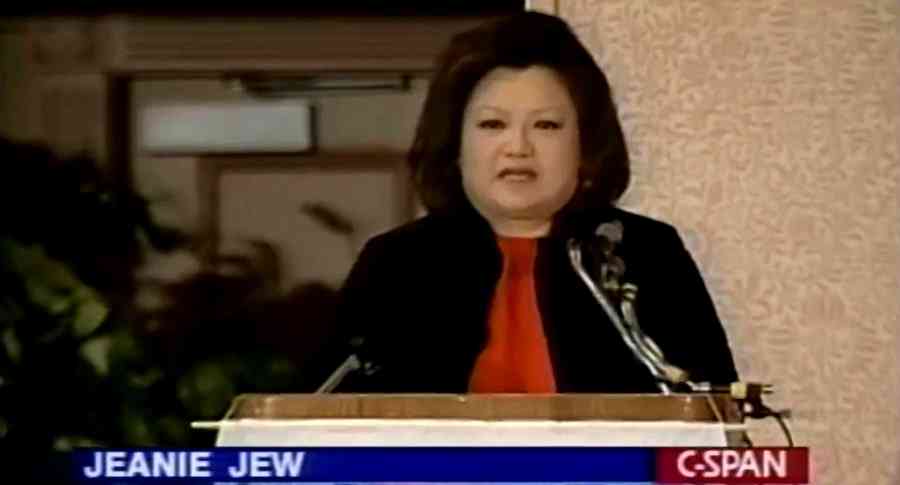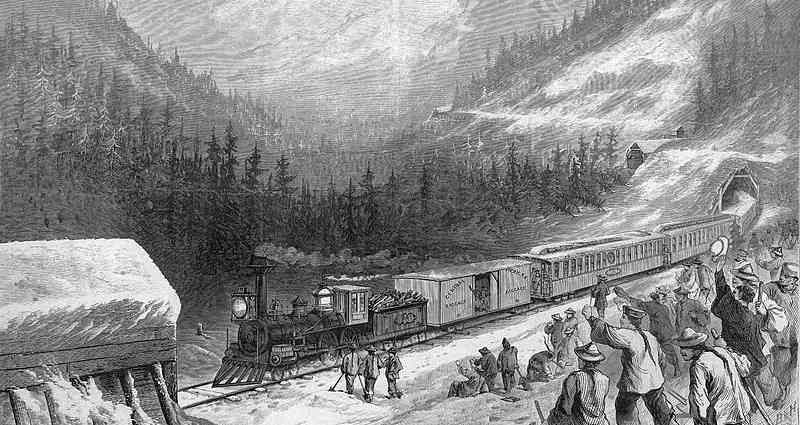Meet the Woman Who Inspired the Creation of Asian Pacific American Heritage Month


By Ryan General
May 12, 2020
Editor’s Note: This article has been updated to correctly report that Jeanie Jew is a board member of the OCA-Asian Pacific American Advocates. The organization has rebranded from the Organization of Chinese Americans.
Given the significance of Asian Pacific American Heritage Month, it is incredible to look back on how this celebration of the community’s countless contributions to the U.S. originated from a congressional staffer’s idea.
Jeanie Jew, a former staffer on Capitol Hill and board member of the OCA-Asian Pacific American Advocates, brought the idea of designating a month out of the year to recognize Asian Pacific Americans to New York Representative Frank Horton.
Having witnessed the U.S. Bicentennial celebrations of 1976, Jew was frustrated that Asian Pacific Americans were not being included as recognized communities in celebration of the bicentennial.
During the period, Black History Month, which was decreed to become a national observance in 1976 by President Gerald Ford, was already being celebrated. Hispanic Heritage Week, recognized as a national celebration by President Lyndon B. Johnson in 1968, was also in place.
According to the APAHeritage website, she also wanted to commemorate her great grandfather M.Y. Lee, who contributed to building the Transcontinental Railroad. Originally from China, M.Y. Lee came to the U.S. in the 1800s and was among those who suffered heavily despite playing a key role in American history. A U.S. federal law that openly targeted Chinese immigrants in the late 19th century made life difficult for many like Lee.

During a Congressional hearing in 1992, Horton highlighted the importance of recognizing people like Lee, according to Time magazine.
“When the Chinese were having difficulties in Oregon, Mr. Lee traveled to Oregon and was killed during that period of unrest. It was a time of anti-Chinese and anti-Asian sentiment. The revelations about Mr. Lee and the story of Asian Americans led this one woman to believe that not only should Asians understand their own heritage, but that all Americans must know about the contributions and histories of the Asian-Pacific American experience in the United States,” Horton was quoted as saying.
To effect change, Jew started a nationwide advocacy campaign to designate one week in May as Asian Pacific American Heritage Week. Her advocacy began to take shape after she sought help from Horton’s administrative assistant, Ruby Moy.
In June 1977, Horton and U.S. Rep. Norman Yoshio Mineta of California co-sponsored a bill urging the POTUS to proclaim the seven day period beginning May 4, 1979, as “Pacific/Asian American Heritage Week.” Hawaii Senators Daniel Inouye and Spark Matsunaga would introduce a similar bill in the Senate a month later. Both bills were eventually revised to conform to the Census Bureau’s designation of the community as “*Asian-Pacific.”
The week starting May 4 was selected as Asian/Pacific American Heritage Week in memory of two significant events that happened during that period: the arrival of the first Japanese immigrants to the U.S. on May 7, 1843; and the completion of the Transcontinental Railroad on May 10, 1869.
With help from Moy and a coalition of national advocacy organizations, Jew managed to get support from 231 Congressional representatives to co-sponsor the bill.
House Joint Resolution 1007 was passed with an overwhelming majority through both the House and the Senate.
President Jimmy Carter signed the joint resolution into law on Oct. 5, 1978, effectively proclaiming the week beginning May 4, 1979, as Asian/Pacific American Heritage Week.
In Presidential Proclamation 4650 which Carter issued shortly after, the president highlighted the significant role of Asian/Pacific Americans in American history, noting the community’s contributions to the sciences, arts, industry, government and commerce.
As there are no provisions for succeeding years in the joint resolution, community organizations would submit annual re-applications, prompting Presidents Carter, Ronald Reagan and George H. W. Bush to issue proclamations that designate a week in May as Asian/Pacific American Heritage Week each year.
After over a decade of advocacy by community organizations, the week-long celebration was eventually extended to include the entire month of May when then-President Bush proclaimed the month as the first “Asian/Pacific American Heritage Month” via Presidential Proclamation 6130 on May 7, 1990. Two years later, Horton introduced legislation that permanently designated May as “Asian/Pacific American Heritage Month.”
*The federal government recognizes “Asian or Pacific Islander” as “a person having origins in any of the original people of the Far East, Southeast Asia, the Indian subcontinent, or the Pacific Islands.” The U.S. Census Bureau has categorized “Asian” and “Pacific Islander” as two separate racial groups since 2000.
Feature Image via C-Span
Share this Article
Share this Article